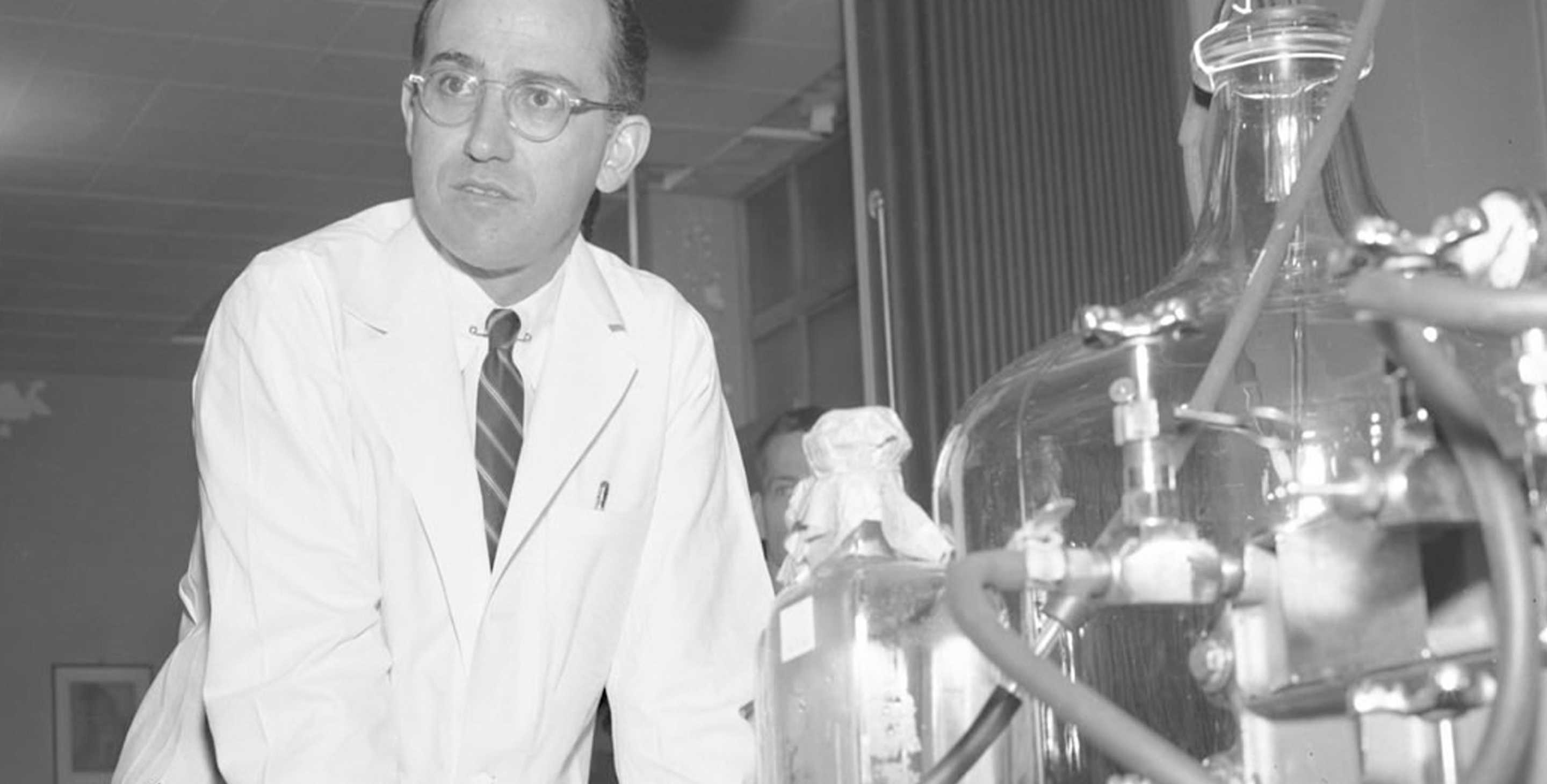Jonas Salk, MDThe New Yorker Who Tamed Polio

Polio threatened children every summer in the first half of the twentieth century. The viral infection spread from person to person, infecting millions. For 1 in 200 infected, the disease would progress to a paralytic phase, stopping them from breathing. By the 1940s, President Franklin D. Roosevelt — a polio survivor himself — helped the National Foundation for Infantile Paralysis raise enough funds to financially support several vaccination efforts.
One of those efforts was led by Jonas Edward Salk, MD. Jonas was the son of Jewish immigrants, and he was born in New York City. As the first person in his family to go to college, Jonas stood out because of his intellect. He earned a bachelor’s degree in chemistry in 1934 from City College of New York, and his medical degree in 1939 from New York University Medical School. As a physician scientist, Dr. Salk worked with Thomas Francis at the University of Michigan in 1941. (Thomas Francis was known for the discovery of influenza viruses and their multiple types.)
The prevailing theory of vaccines at the time was that the pathogen used in creating the vaccine had to be attenuated (weakened to the point of being incapable of causing disease). Scientists disagreed whether a killed virus would trigger an immune response. Building on the work of scientists like Elise Ward (who developed a way to grow polio virus in non-human tissue cultures) and Isabel Morgan (who successfully immunized primates with killed polio virus), Jonas Salk successfully developed a polio vaccine by the mid-1950s.
During a series of community trials of the vaccine in 1954 and 1955, the Salk vaccine was found to be highly effective in preventing polio disease in children. Children randomized into the vaccine group had a lower rate of symptomatic polio than children randomized into the placebo group. The success of the trials was shared far and wide around the world, as the scourge of polio that had frightened many parents was about to be conquered.
After the success of the polio vaccine, Dr. Salk opened the Salk Institute for Biological Studies in 1963. He dedicated his life to researching other vaccines, including a vaccine against HIV, the virus that causes AIDS. He received numerous awards and honors for his work.
Dr. Salk died at the age of 80 and is buried in San Diego, California.